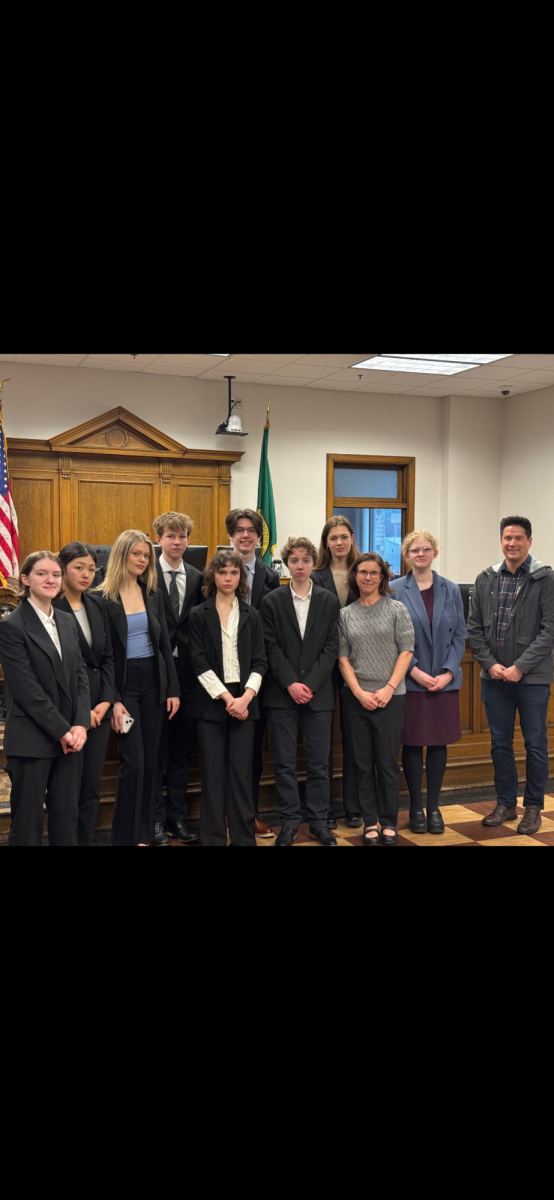Chemistry teacher draws from years of background in the sciences
Lena Bowe, Opinions Editor
Originally published October 27, 2015
It’s widely known that if an explosion is heard from within the school, the source is likely Dr. Dewey Moody’s classroom.
Moody, who has taught general and Advanced Placement Chemistry since 2004, has a reputation as an eccentric teacher with a flair for the dramatic. A typical day in his class could include anything from listening to songs about the inner workings of atoms to setting a table on fire. Despite his unorthodox style, Moody is considered by students to be an excellent teacher. “He really keeps you on the edge of your seat,” senior Jamie Smith said.
Moody’s success as a teacher stems from a genuine passion for the sciences. After getting a master’s degree in microbiology in 1977, he began his career working for the Florida Department of Health, researching amoebas that had proven to be a public health
issue.
“I worked for two years and got a little frustrated because I wasn’t in charge,” Moody said. “So that forced the decision for me to go back to graduate school to get a Ph.D., because if you want to be the head of the laboratory, you’re going to have to have a doctorate.”
Moody revived a PH.D in immunology from the University of South Florida in 1983 and went to work on treatment options for AIDS patients at UCLA laboratories. “[The AIDS epidemic] was right at that time,” Moody said. “It was a very horrible disease because there was no cure. Anybody that got it died in two years.”
Moody experimented for years with a process called autologous transplantation — the treatment of AIDS using patient’s own white blood cells. In 1992, he switched gears, using the same process to treat renal cell carcinoma, a type of kidney cancer.
“I was trying to help the company figure out how to use an adenovirus to infect cancer cells and deliver a killer gene,” Moody said. “It was what they call ‘gene therapy.’” An adenovirus is an infectious virus used in laboratories to transfer genes into cells.
In 1997, Moody left the laboratory for a position in the corporate office of Cell Therapeutics, Inc., a company that develops drugs to treat blood-related cancers. “My job was to do what they call business development,” Moody said. “It was not bench science, but it was actually looking at legal science, the ownership of certain ideas and buying and selling those ownership rights.”
After being laid off in 1999, Moody found a job with another company doing business development, but was laid off again after the company was bought out.
“That left me with ‘Well, I’m going to go find another business development job, I’m going to move to San Francisco, I’m going to move to San Diego, I’m going to move to Boston, all of the hotbeds for business development in small biotech companies,’” Moody said. “And frankly, Seattle was pretty appealing and I didn’t want to move again. That left the question in my mind, ‘What do I do with the rest of my life and all these stupid degrees that I got?’”
After briefly lecturing at colleges around the Seattle area, Moody started to look into secondary education. “I came [to BHS] and volunteered to find out what it was like,” he said. “I was kicking the tires on the car and saying ‘What’s this thing like? What’s it look like on the inside?’”
Moody received a master’s degree in teaching from Western Washington University in 2004 and has been a teacher ever since. Of all the positions he’s held throughout the years, he says that being a teacher is his favorite.
“My career has always been walking along and tripping over a log, and then turning left and then going in another direction,” Moody said. “It has not been a master plan across the board. There are probably people who can do that, I’m not one of those. I like where I am and who I am right now, and going back [to a past position] just doesn’t make any sense.”
Moody’s years of experience have taught him that one of the most important concepts of science is interconnectivity. “You can’t do chemistry with- out doing biology, you can’t do biology without having physics involved,” he said. “The one thing I try to carry off is to try and draw connections between all of those things.”
This idea is what drew Moody to study science in the first place. “Discovering its interconnectivi- ties is really the interesting thing of science,” he said. “If I dig deep enough in this one area, sud- denly the hole will open up and I’ll be in another area of science, and they’re totally connected.”
Despite his extensive scientific knowledge, Moody says the most valuable thing he’s learned from his career is to maintain a sense of humor. “Laugh a lot,” he said. “Because the absurdities on planet Earth, especially when you’re dealing with Homo sapiens, are just unbelievable.”
























